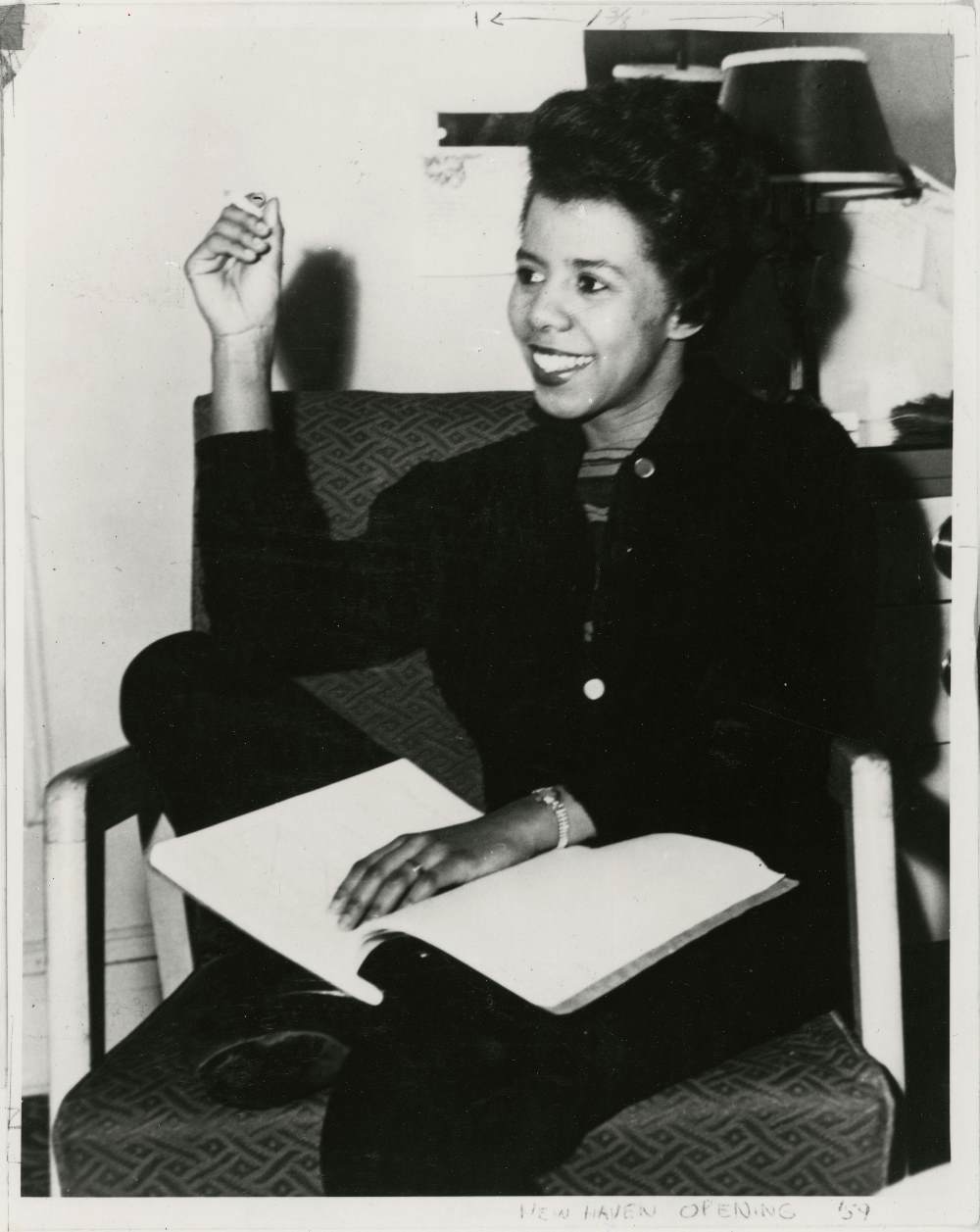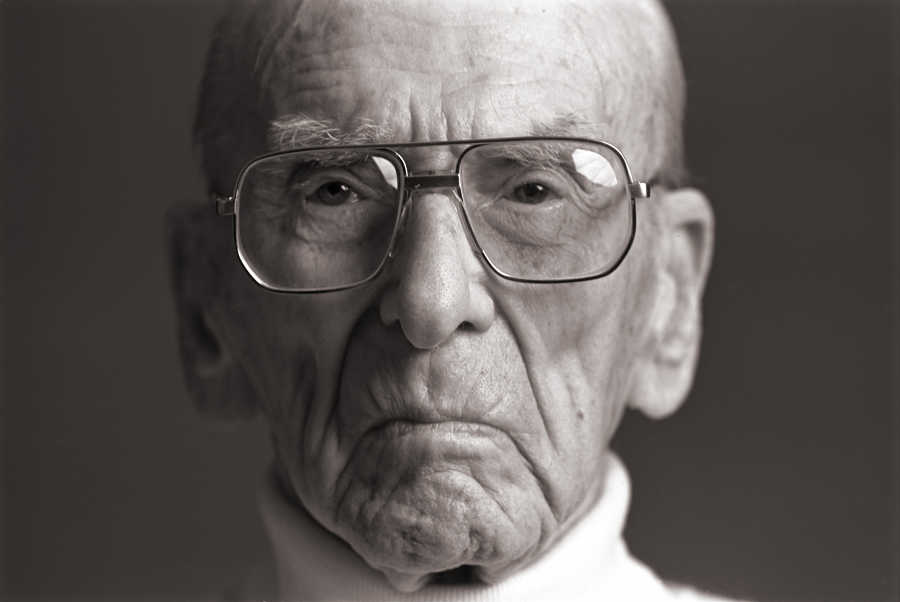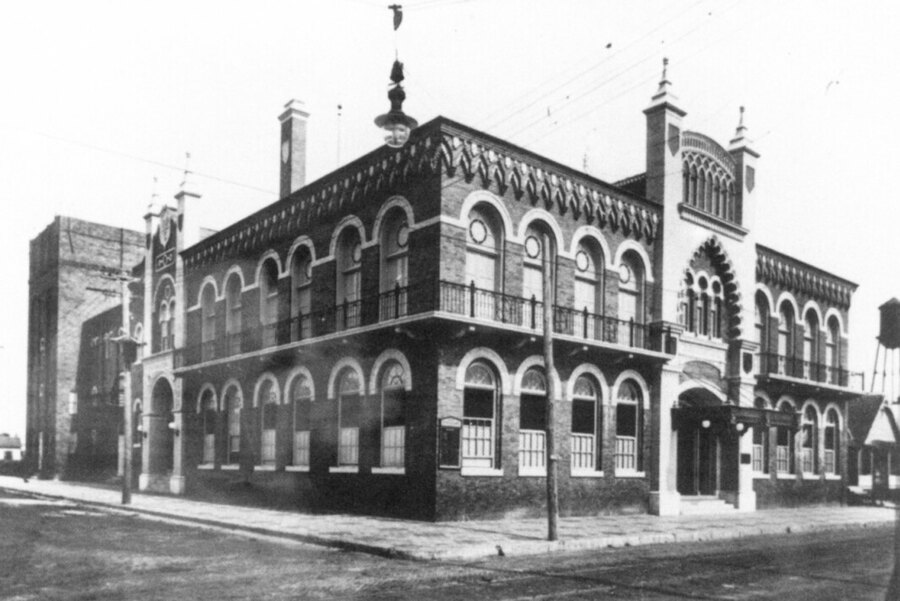1905 (120 years ago)
On Jan. 29, La Revista, a Spanish-language newspaper in Florida, announced that the Centro Español had contracted a Cuban theatre artist, Jacinto González, to become the artistic director of the group. Cuba’s war for independence from Spain (1895-1898), coupled with economic opportunities for cigar manufacturers, had led to an influx in Cuban immigration to Florida in the late 19th century. Centro Español had been founded as a mutual aid organization in Tampa, with its first building including a cantina, classrooms, and a dance hall/theatre. The hall measured 51×21 feet, with removable seats to transform the space from theatre to dance hall and back. Like other organizations founded to serve the Spanish-speaking community at this time, Centro Español also supported a sección de declamación, or amateur theatrical company, made up mostly of the society’s members. The audience largely comprised affluent tobacco industry workers who expected a high level of professionalism from the performances. .
1915 (110 years ago)
Lady Gregory, an Anglo-Irish dramatist, folklorist, and theatre manager who had helped to found Irish Literary Theatre and the Abbey Theatre, wrote to the American theatre producer Kenneth Macgowan about her hopes for a “National Theater.” She wrote, “I am still full of the idea that one will be started in America—a tree with a root in every state.” Macgowan would later head the Provincetown Playhouse with Eugene O’Neill, but the notion of a U.S. national theatre along the lines Lady Gregory proposed arguably wouldn’t take shape until the regional theatre movement of the 1950s, ’60s, and ’70s.
1950 (75 years ago)

Lorraine Hansberry, author of A Raisin in the Sun, attended a Communist Party meeting in Wisconsin. About a year later, she wrote to a friend that she fully identified with the title communist insofar as she was “sick of poverty, lynching, stupid wars, and the universal maltreatment of my people, and obsessed with a rather desperate desire for a new world for me and my brothers.” In the biography Looking for Lorraine, Imani Perry wrote, “Lorraine’s unpublished experimental writing in the early 1950s reveals the ways in which she saw herself as both part of an activist community and part of an intellectual and artistic tradition, specifically a Black tradition. Black history and her milieu made their way into her imagination, and her imagination revealed her commitments.” Hansberry died in January 1965 at the age of 34.
1970 (55 years ago)
The Holy Ghostly by Sam Shepard had its U.S. premiere at the McCarter Theatre in Princeton, N.J. First performed in Europe, this one-act play is about Pop and his son, named Ice, failing to connect as they sit at a campfire in an American desert. Like much of Shepard’s work, the play explores violent masculinity and the inescapable legacies that sons inherit from their fathers. In 2003, The Guardian quoted Shepard about his own father: “You could see his suffering, his terrible suffering, living a life that was disappointing and looking for another one. My father was full of terrifying anger.” Shepard won a Pulitzer Prize for Drama in 1979 for his play Buried Child.
1980 (45 years ago)
On Jan. 25, Albert Ottenheimer died in Cincinnati while rehearsing The Cherry Orchard. Ottenheimer had been a leader at Seattle Repertory Playhouse, serving as the in-house press agent and taking on some literary management. In 1941, he described how people had traveled long distances to see the theatre’s enormously popular 1931 production of Peer Gynt. “The same people came twice,” he wrote, “some three, four and more times to see it.” In a program for that production, Ottenheimer was billed as “Professor Begriffenfeldt, director of the Mad-House.” He described it as one of the most popular productions he had ever been a part of, and one account claims that it saved the young theatre company from bankruptcy. In the late 1940s, leaders of Seattle Repertory Playhouse (including Ottenheimer) were accused of having Communist ties and Ottenheimer was blacklisted.
1995 (30 years ago)

George Abbott died on Jan. 31 at the age of 107 in Miami. In a legendary career spanning eight decades, Abbott wrote, directed, and produced such musicals as The Pajama Game and Damn Yankees. He was involved with 122 productions as playwright, producer, director, actor, or play doctor; often he held more than one role in the same show. Abbott was responsible for giving many people their first break in the theatre. Among many other awards, he won six Tony Awards and the 1960 Pulitzer Prize for Drama. He was honored with a 100th birthday tribute at the 1987 Tony Awards.
NOTE: The 1980 entry initially stated that the Seattle Repertory Playhouse was later renamed Seattle Repertory Theatre. In fact the two organizations and their histories are entirely separate; the Playhouse closed in 1950 and the Rep opened in 1963.
Support American Theatre: a just and thriving theatre ecology begins with information for all. Please join us in this mission by joining TCG, which entitles you to copies of our quarterly print magazine and helps support a long legacy of quality nonprofit arts journalism.


